
Developing Leadership Skills in Students: Creating the Leaders of Tomorrow
In his address at the dedication of Qunu and Nkalane Schools in 1995, Nelson Mandela said,
“Our children are the rock on which our future will be built, our greatest asset as a nation. They will be the leaders of our country, the creators of our national wealth, those who care for and protect our people. But if they are to take on this great responsibility, the rich potential in every child must be developed into the skills and the knowledge that our society needs. Education is the key to that process. It is also a door which opens from every village and city onto our larger society and indeed onto the whole world.” (Nelson Mandela Foundation, 2023).
Leadership is a collection of skills that enable an individual to empower others and inspire positive change. These skills include problem solving, team building, reflection, time management, communication, decision making, open-mindedness, creativity, responsibility, and organization.
In children, leadership builds self-efficacy – believing in the power of your own actions. When children feel empowered, they gain confidence and develop a sense of responsibility to advocate for positive change. In addition, children learn to use creative problem solving and peer collaboration to make a difference in their communities (The Pennsylvania State University, 2023).
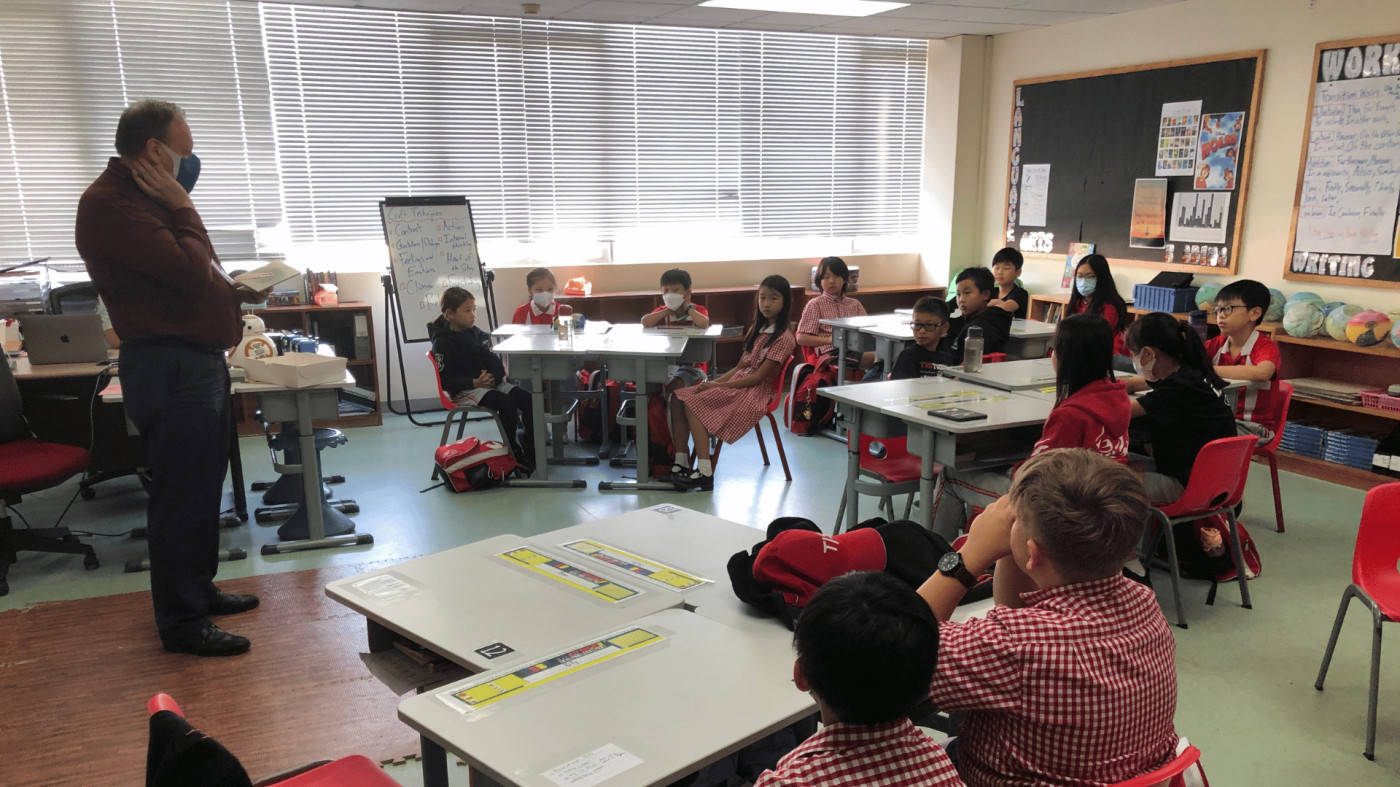
Like any other skill, leadership skills can be nurtured and developed throughout a lifetime. However, many leaders begin their leadership journeys in childhood by being given opportunities to practice their leadership skills. When asked to recall their earliest experiences with leadership, members of our TIS leadership team not only recalled some of their earliest experiences with leadership fondly, but they also recognized the impact of these experiences and how they marked the beginning of their leadership journeys.
When he was in the fifth grade, our Head of School, Mr. Schmidt was selected to represent his class in a student exchange program at a French bilingual school and stayed with a French family. Afterwards, he had to present at a Q & A session about the experience.
Ms. Jasinski was nominated to be the home reading book assistant when she was in Grade 1. She was involved in the record keeping for classroom books signed out and returned for a month.
Mrs. Kiat had the honour of being chosen as one of the students in charge of raising and lowering the Canadian flag every day in elementary school.
Mr. Brown was an indoor soccer referee for younger kids when he was in high school.
Mr. Chignall was his softball team’s captain and pitcher from Grades 4-6.
When Mrs. Schmidt was in upper primary school, she was a crosswalk patrol officer and a member of her Student Council.
Mr. Masters captained his school rugby team when he was in Grade 5.
As for myself, when I was in the sixth grade, I created and led my school’s Kinder Egg Club and volunteered as a program assistant for my local figure skating club.
Every child has the potential to develop leadership skills, and it is the responsibility of adults to find ways to nurture these skills. It is no coincidence that many of the leadership skills listed above overlap our TIS Tiger Traits. At TIS, we actively strive to provide opportunities for our students to gain and practice leadership skills at all ages. Here are a few of the ways our students learn to become leaders:
Student Leadership Teams:
Elementary Student Leadership Team: In this club, students in Grades 4-6 learn how to be a leader, participate in a variety of team-building activities, advocate for change within our school, and plan fundraising events for local charities.
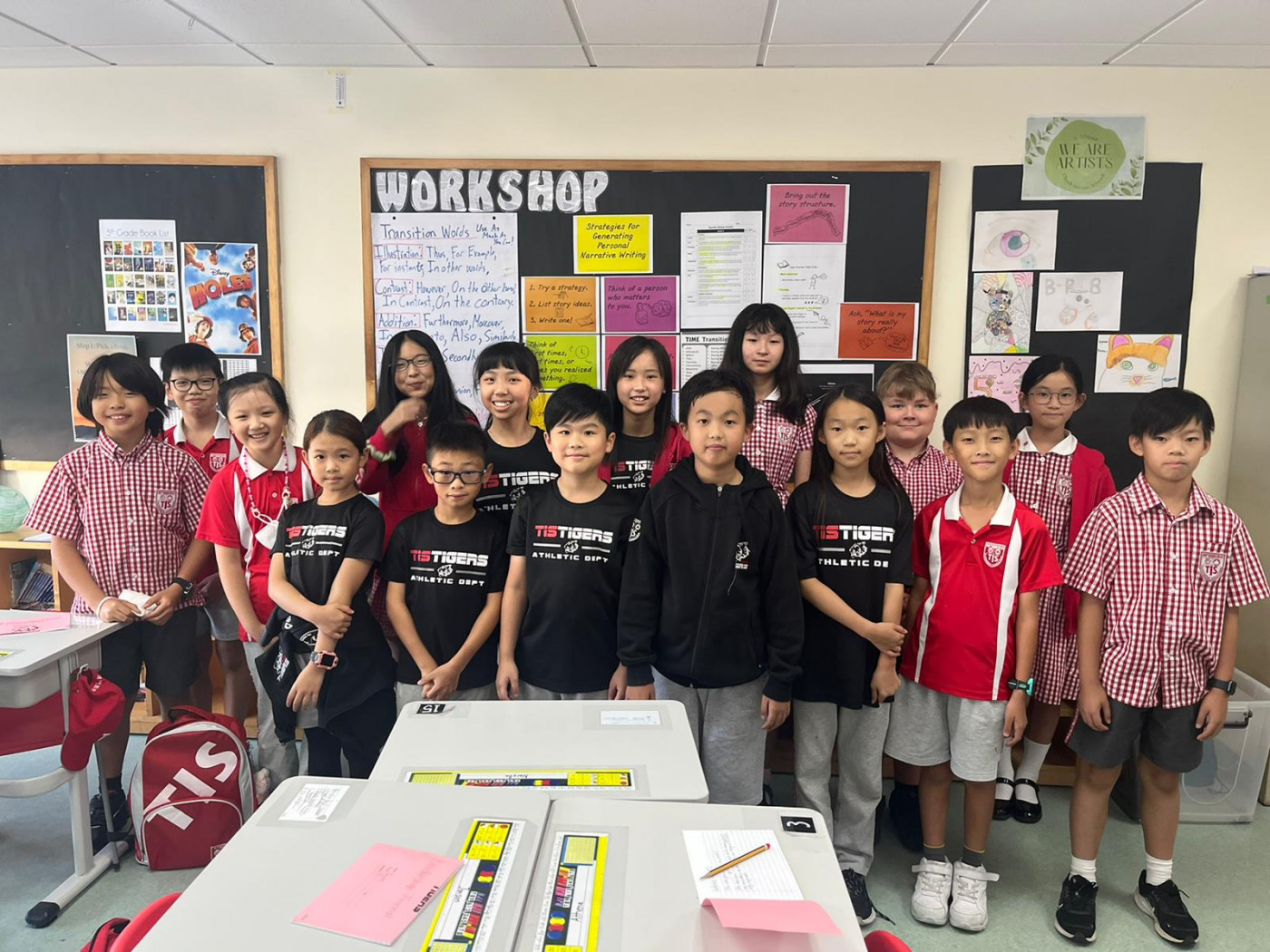
Middle School Leadership: Middle School Leadership involves students in Grades 7 to 9 who are trying to improve their leadership skills. This group contributes to events including leadership summits, giving trees, Activist in Residence, candy grams, community days, and house team activities.
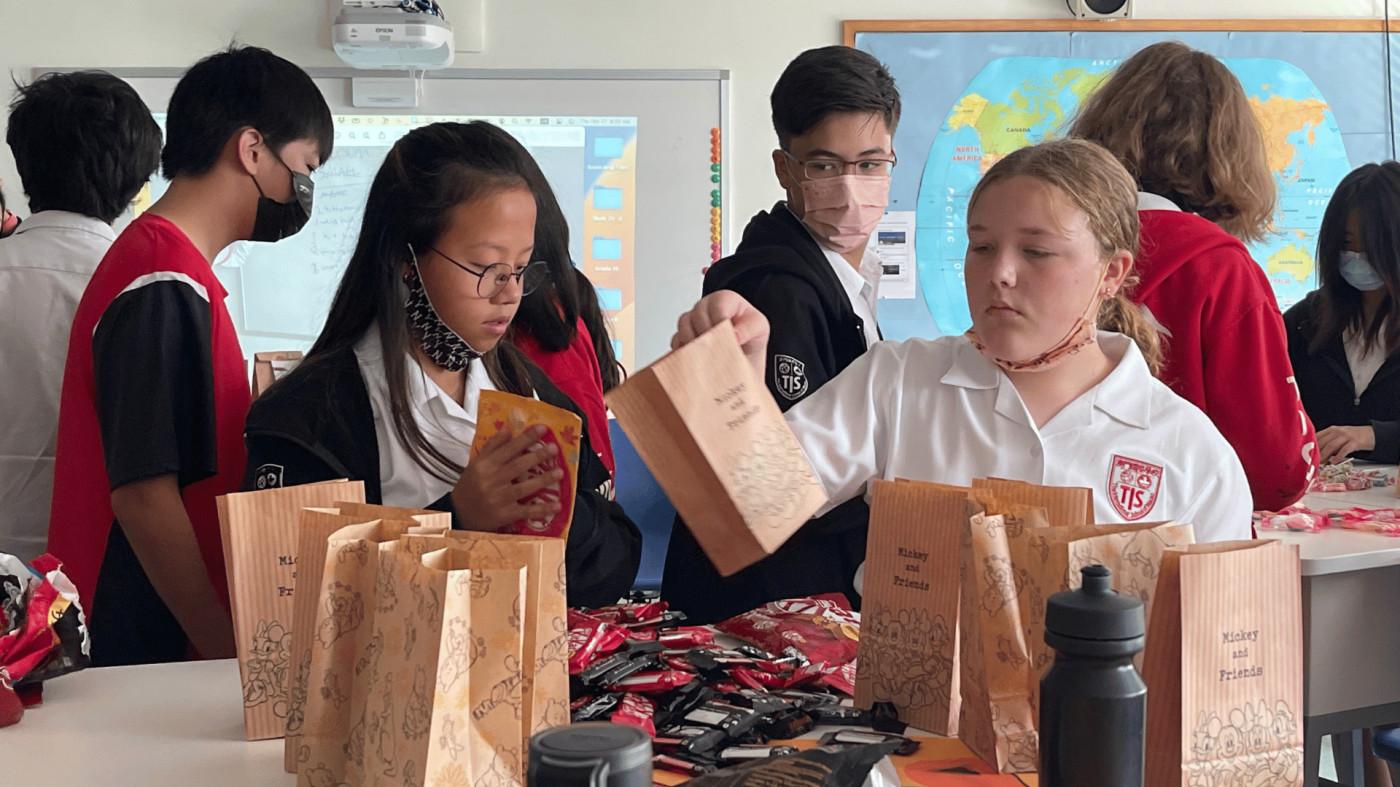
High School Student Council: The Council fosters a positive high school experience for all by planning and leading various events throughout the year, including organizing and running special events, TIS hoodies sales, fundraisers, the Food Cart, and the Benefit Concert, to name a few.
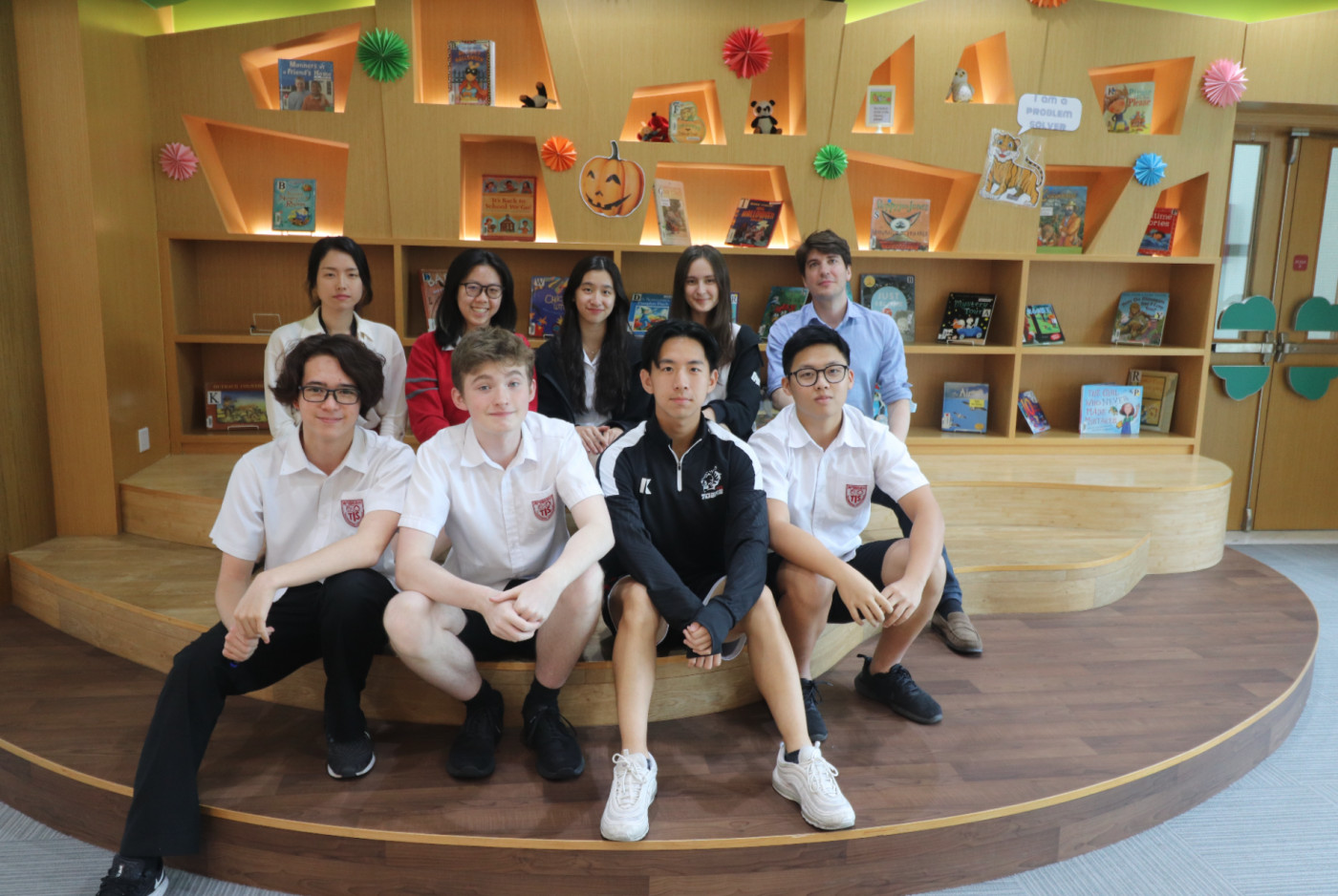
Student Mentorship: Secondary students are paired with primary students as mentors. They spend time together once a week after school forming a positive peer relationship.
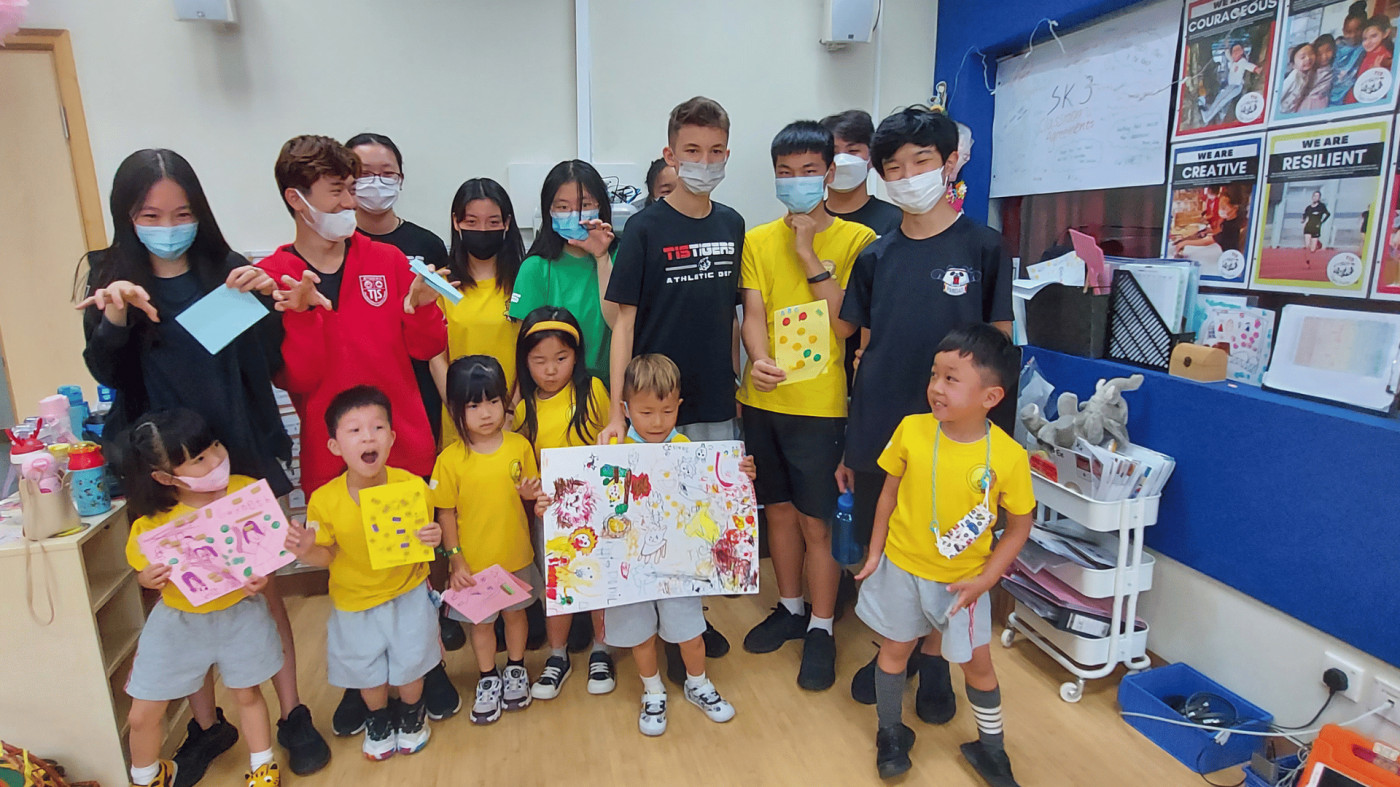
Extra-Curricular Activities including Primary and Secondary Productions
Athletics: Team Captains
Athletic Council: This group of students collaborate with the Athletics department to organize tournaments.
Classroom Responsibilities: In elementary school, students are often given classroom responsibilities such as line leader, morning meeting leader, and lunch helper.
Student Tutors
Volunteer Team: This group of students works with CARITAS to plan fundraising events and make a difference in their local community.
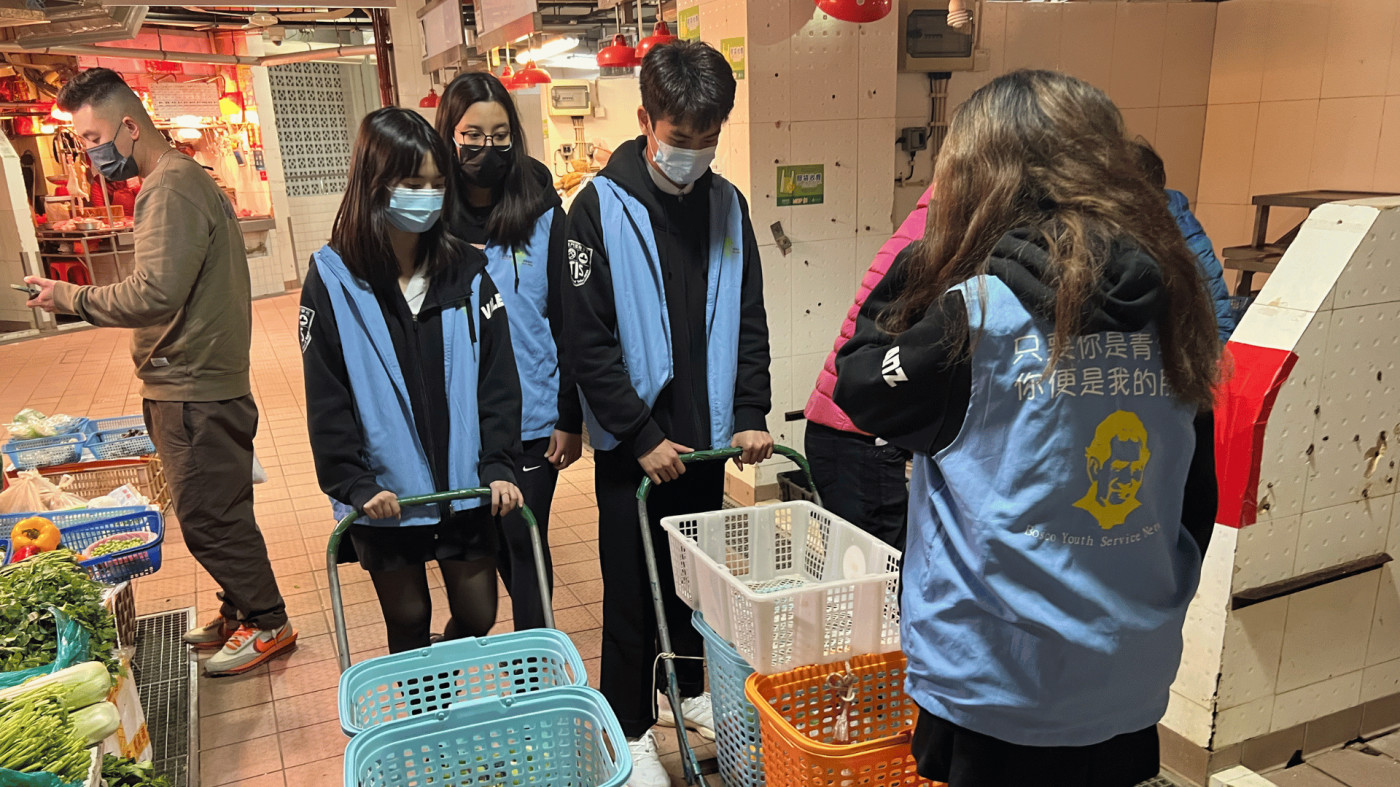
House Team Buddies: High School students partner with kindergarten students to participate in our house team events.
Assembly MCs
Model UN Club builds leadership through research and debate.
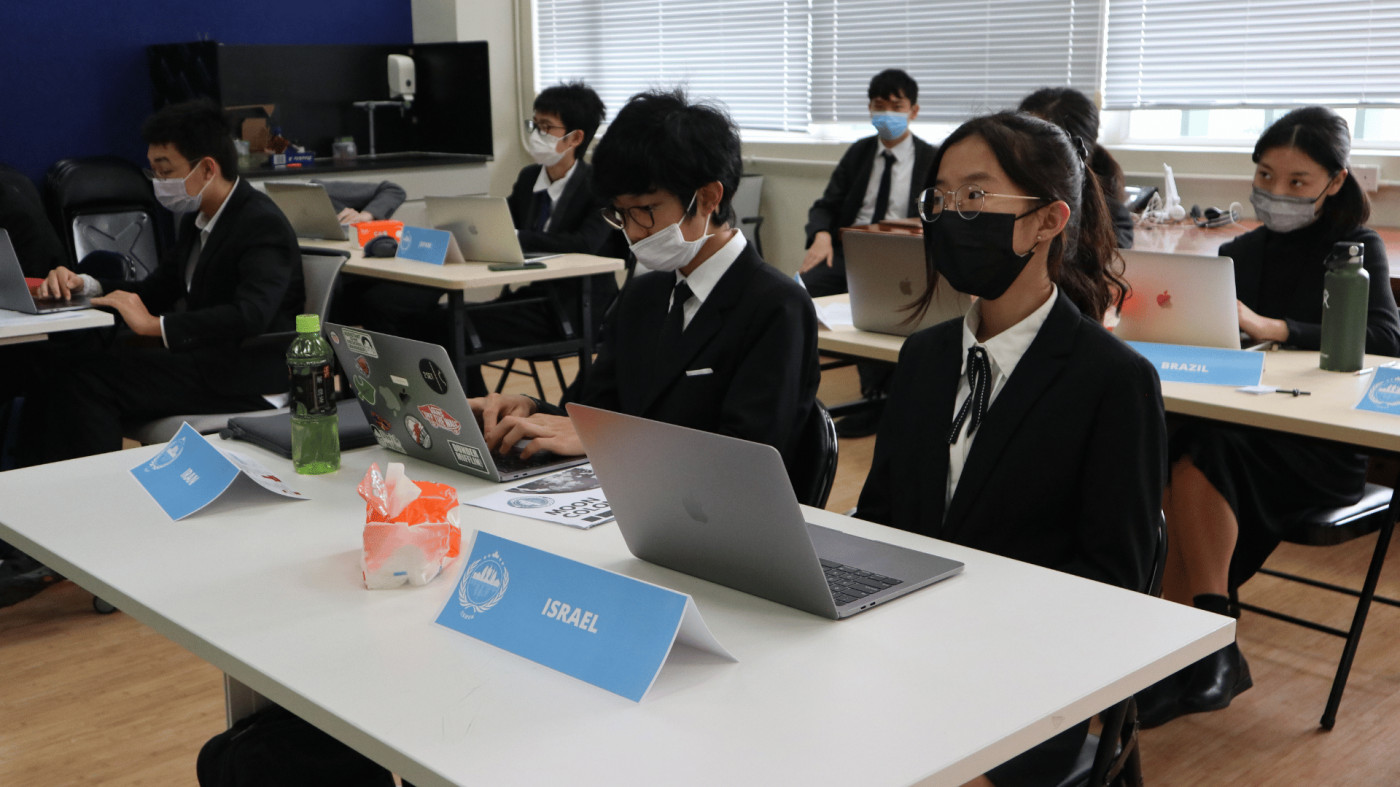
Passion Project students develop a project proposal, timeline, and give a presentation to a panel at the end of the year on what they have accomplished.
Activist in Residence Program models and encourages activism.



